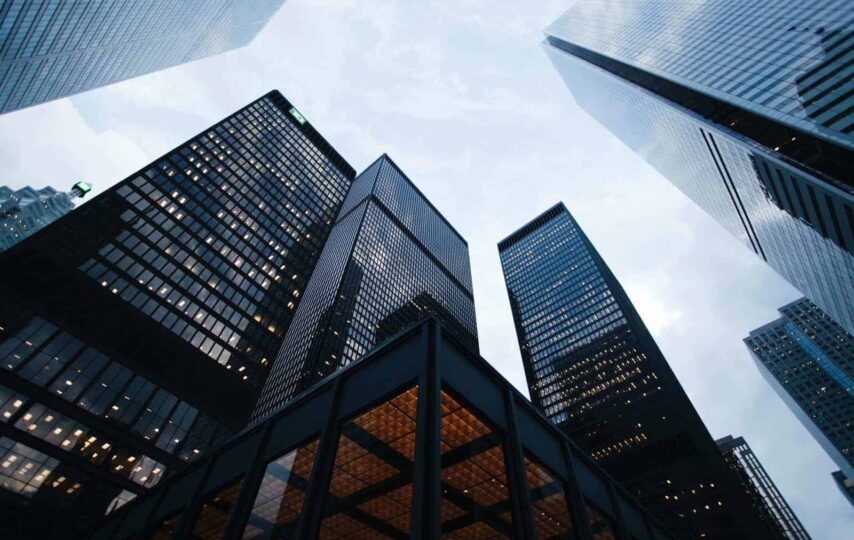Concrete, steel, wood, and masonry are among the numerous building materials utilized in the construction business. Every material has a different weight, strength, durability, and cost, making it appropriate for different purposes. The construction materials are chosen based on their cost and ability to withstand the loads and strains operating on the structure. Architects and builders collaborate closely with their clients to choose the structure and materials for each project.
The new-age infrastructure incorporates a mix of creative design styles, robust technology, and high-end and durable construction and building supplies materials to achieve the required shelf life and sustainability. The demand for skyscrapers and other infrastructure projects to be built of the most appropriate materials has increased as the number of skyscrapers and infrastructure projects planned has increased. Building materials form the backbone of any construction project, ensuring structural integrity, functionality, and visual appeal. Concrete, bricks, wood, glass, and stone are just a few examples of the vast array of materials available to architects and builders. By understanding the unique properties and applications of these materials, professionals can create sustainable, resilient, and visually stunning structures that stand the test of time. To learn more about new home builds be sure to check out Carlisle Homes. The following are some of the most often used building materials:
Wood
Wood has a significant inherent advantage over substitutes such as plastic and other manufactured materials. The wooden building has always been the preferred method of home construction, particularly in rural regions. In recent times, wood is making inroads into metropolitan areas as building materials for Dubai homes. The following are some critical benefits of utilizing wood:
- Lightweight and longer self-support length – high tensile strength.
- Natural resistance to building and heat and heat and electrical resistance provide better safety and stability.
- Sound absorption – Its naturally acoustic qualities make it ideal for city living and working environments.
- Aesthetically, the natural feel of wood is appealing. In addition, depending on the necessity, an astonishing variety of wood is available.
Glass
In the urban environment, glass is becoming an essential element. Glass is being used as a facade replacement in corporate headquarters and modern houses. Below are the most significant advantages of utilizing glass:
- Beautification – From the outside, it appears to be attractive.
- More sunlight – enables the most efficient use of sunlight while lowering energy expenditures.
- Seclusion — Available in a wide range of reflecting surfaces to provide privacy
- UV Resistant — Blocks damaging UV rays from entering the building.
Metal
Metals such as aluminum and steel alloys are used extensively in the building industry worldwide, and they serve as the framework for large projects. Metal’s advantages as building materials in Dubai include:
- Flexibility and resiliency – Extremely long-lasting and powerful
- Weatherproof – Can endure a wide range of climatic conditions.
- Fire-resistant — as opposed to glass or wood, it is less vulnerable to fires.
Cement
Cement is a binder used in almost all types of building in Dubai. It provides a high level of construction resistance and overall building integrity. The following are some of the advantages of utilizing cement:
- Massive and better at storing heat, resulting in a longer warming/cooling cycle.
- Strong – can withstand a lot of compressions.
- Simple to produce
The top Nashvilleconcretecorp.com concrete contractors know understand the best mix of aggregate, cement, and other binding agents will react with each other is essential for your job to be completed perfectly.
Blocks and Bricks
Bricks, made of clay or mud, come in various forms and have excellent structural strength. They’ve been utilized to build houses and workplaces in Dubai for a long time. Its benefits include:
- Thermal stability is excellent.
- Made using locally sourced materials
- Manufacturing costs are low, and the product is long-lasting.
- Insulation, moisture absorption, and resonance characteristics are all available.
Concrete
Concrete is composite building materials consisting of coarse and fine aggregates linked together by a binding agent, such as cement, solidifying, or curing with time. Cement is a fine powdery substance made by heating limestone and clay components in a kiln and adding gypsum. As a result, cement concrete comprises mineral aggregate bonded together with cement and water. The cement hardens or cures after mixing, resulting in the stone-like substance you know as concrete. Concrete’s many characteristics include:
- The strength of the mixture varies. Suppliers typically provide the ingredients used in concrete to the concrete industry, and then the masons test the concrete mix for strength.
- Pouring concrete into a mold can help it assume almost any shape and solidify into a stone-like substance.
- As concrete takes at least seven days to cure, engineers and architects must consider this when planning concrete construction timetables.
- It’s the best material for a home foundation because of its adaptability, low cost, and strength. A concrete building foundation is widespread because it can bear significant weight and resist the pressures of the environment.
- Engineers frequently intend to reinforce concrete using steel rods or bars to enhance its tensile strength.
Final Thoughts
In our exploration of common building materials, it’s crucial to acknowledge the foundation of any construction project: expertise. That’s why we advocate for aspiring builders to explore the pathway to Builder Registration. Discover the seamless process of obtaining your license and skip unnecessary qualifications, aligning your training with your career objectives.
People must also be accountable for the environmental effect that the population leaves behind as the demand for futuristic dwellings grows. Using environmentally friendly building materials such as clay may assist the environment and is currently the most excellent answer available. No work is complete from frame to the foundation, much alone a success unless it incorporates the advantages of diverse materials such as wood, steel, and concrete. These building materials for Dubai homes might help you achieve the ideal home as well as peace of mind.







